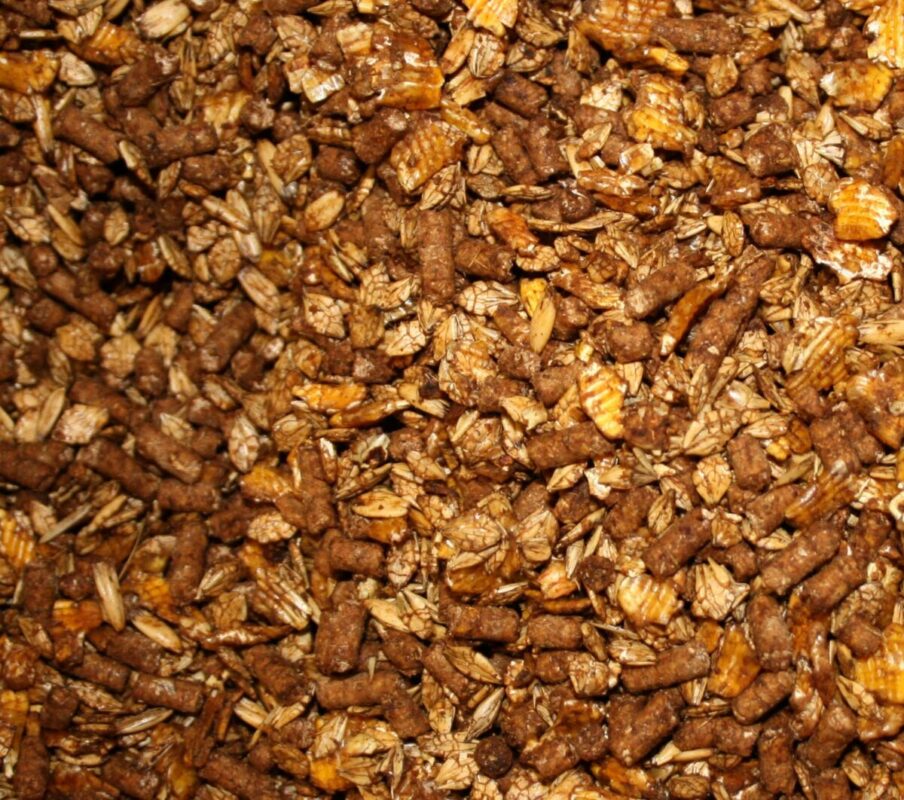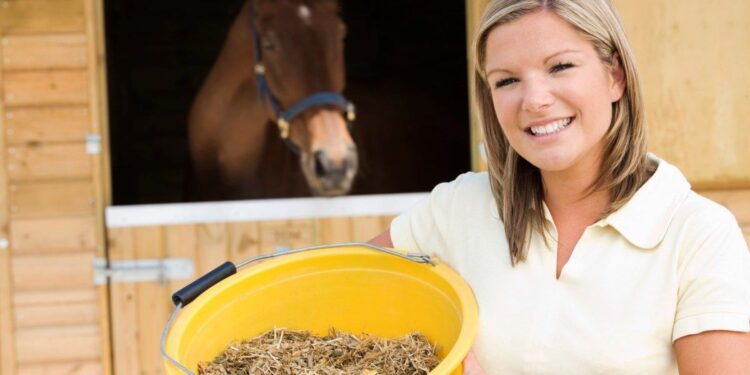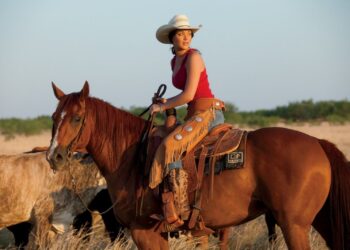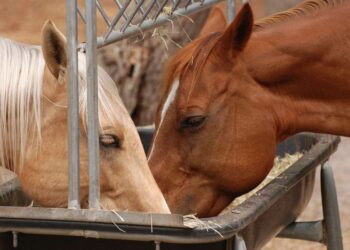Horses are majestic creatures that require proper nutrition to maintain their health, energy, and overall well-being. One of the most popular types of horse feed is sweet feed, which is a combination of grains, molasses, and other ingredients that provide horses with essential nutrients. In this blog, we will explore the importance of sweet feed for horses, the different types of sweet feed available, how to choose the right sweet feed for your horse, and common mistakes to avoid when feeding sweet feed.
The Importance of Sweet Feed for Horses
Sweet feed is an essential component of a horse’s diet because it provides them with the necessary nutrients they need to thrive. Horses require a balanced diet that includes carbohydrates, proteins, fats, vitamins, and minerals. Sweet feed is an excellent source of these nutrients, making it a popular choice among horse owners.
According to the American Association of Equine Practitioners, horses should consume 1-2% of their body weight in forage per day, and may require additional feed depending on their activity level and other factors. Source
What is Sweet Feed?
Sweet feed is a type of horse feed that typically contains a combination of grains, molasses, and other ingredients. The grains used in sweet feed can include corn, oats, barley, and wheat. The molasses provides a sweet taste that horses enjoy and helps bind the ingredients together.

Benefits of Sweet Feed for Horses
Sweet feed has several benefits for horses, including:
Provides essential nutrients: Sweet feed contains essential nutrients that horses need to maintain their health and energy levels.
Promotes weight gain: Sweet feed is high in calories and can help horses gain weight.
Enhances coat condition: The ingredients in sweet feed can help improve a horse’s coat condition, making it shiny and healthy.
Improves digestion: The grains in sweet feed are an excellent source of fiber, which can help improve digestion in horses.
Reading Suggestion: 501+ Horse Names For Male and Female Horse Names
Nutritional Requirements of Horses
Horses require a balanced diet that includes carbohydrates, proteins, fats, vitamins, and minerals. A lack of any of these nutrients can lead to health problems and a decrease in energy levels.
Nutrients Required by Horses
Carbohydrates: Horses require carbohydrates for energy. The main source of carbohydrates in a horse’s diet is grains.
Proteins: Proteins are essential for muscle growth and repair. Horses require high-quality protein sources such as soybean meal, alfalfa, and grass hay.
Fats: Fats are an excellent source of energy for horses and can help improve coat condition. Sources of fat in a horse’s diet can include vegetable oil and rice bran.
Vitamins: Horses require vitamins A, D, E, and K for various bodily functions. These vitamins can be found in hay, grains, and supplements.
Minerals: Horses require minerals such as calcium, phosphorus, and magnesium for bone health and other bodily functions. These minerals can be found in hay, grains, and supplements.
Common Nutritional Deficiencies in Horses
Horses can develop nutritional deficiencies if they do not receive a balanced diet. Common nutritional deficiencies in horses include:
Protein deficiency: A lack of protein in a horse’s diet can lead to muscle wasting and poor coat condition.
Vitamin E deficiency: A lack of vitamin E can lead to muscle weakness and poor immune function.
Calcium deficiency: A lack of calcium can lead to bone problems and poor muscle function.
Types of Sweet Feed for Horses
There are two main types of sweet feed for horses: pelleted sweet feed and textured sweet feed.
Pelleted Sweet Feed vs Textured Sweet Feed
Pelleted sweet feed is made by compressing the ingredients into small pellets. Pelleted feed is easier to store and transport than textured feed. Textured sweet feed is made by mixing the ingredients together, creating a textured appearance. Textured feed is more palatable to horses than pelleted feed.
Which Type of Sweet Feed is Best for Your Horse?
The type of sweet feed that is best for your horse depends on your horse’s individual needs and preferences. Some horses prefer the texture of textured feed, while others prefer the ease of pelleted feed. It is important to consider your horse’s age, weight, and activity level when choosing sweet feed.
How to Choose Sweet Feed for Your Horse?
When choosing sweet feed for your horse, there are several factors to consider:
Age: Young horses require a diet that is higher in protein and calories than older horses.
Weight: Overweight horses require a diet that is lower in calories than underweight horses.
Activity level: Horses that are more active require a diet that is higher in calories and protein than horses that are less active.
Reading Suggestions: Mare In Heat: Duration, Frequency and Signs
Understanding Feed Labels
It is important to read the feed label when choosing sweet feed for your horse. The label should provide information on the ingredients, nutrient content, and feeding instructions.
How to Determine Your Horse’s Nutritional Needs
To determine your horse’s nutritional needs, you can consult with a veterinarian or equine nutritionist. They can provide you with recommendations on the type and amount of feed your horse requires.
Feeding Sweet Feed to Horses
When introducing sweet feed to your horse, it is important to do so gradually. Start by mixing a small amount of sweet feed with your horse’s current feed and gradually increase the amount over several days.
Feeding Sweet Feed to Horses Safely
It is important to feed sweet feed to horses safely to avoid health problems. Some tips for feeding sweet feed safely include:
Feed in small amounts: Feed sweet feed in small amounts to avoid overfeeding.
Provide fresh water: Horses should always have access to fresh, clean water when feeding sweet feed.
Store properly: Sweet feed should be stored in a cool, dry place to prevent spoilage.
Common Mistakes to Avoid When Feeding Sweet Feed
Some common mistakes to avoid when feeding sweet feed include:
Overfeeding: Overfeeding sweet feed can lead to weight gain and other health problems.
Feeding expired feed: Expired sweet feed can be harmful to horses and should not be fed.
Not providing enough water: Horses should always have access to fresh, clean water when feeding sweet feed.
Alternatives to Sweet Feed for Horses
There are several alternatives to sweet feed for horses, including
- Hay
- Grass
- Hay Cubes
These options can provide horses with essential nutrients and can be a good choice for horses that cannot tolerate sweet feed.
Pros and Cons of Different Horse Feeds
Each type of horse feed has its pros and cons. Hay is an excellent source of fiber but may not provide enough protein for active horses. Grass is a good source of nutrients but may not be available year-round. Hay cubes are convenient but may be more expensive than other types of feed.
When to Consider Alternatives to Sweet Feed
Alternatives to sweet feed may be necessary if your horse has a health condition that requires a specialized diet or if your horse is unable to tolerate sweet feed.
Conclusion
In conclusion, sweet feed is an essential component of a horse’s diet that provides them with the necessary nutrients they need to thrive. When choosing sweet feed for your horse, it is important to consider your horse’s individual needs and preferences. It is also important to feed sweet feed to horses safely and to avoid common mistakes such as overfeeding and feeding expired feed. By understanding the nutritional requirements of horses and choosing the right sweet feed, you can help ensure that your horse remains healthy and happy.









